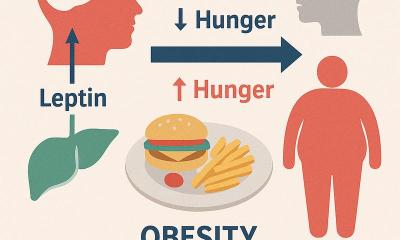Article • Spanish expert separates fables from facts
Seasonal over-indulgence
In the early months of a New Year many of us are tightening our belts after Christmas gastronomic indulgences. However, the belt may not be as long as it used to be and the gym treadmill may be the only answer.
Report: Mélisande Rouger

In Spain, the Christmas holiday period culminates in the arrival of the Three Kings on 6th January, giving everyone one more week to relish festive delicacies, including the delicious calorie bomb Roscón de Reyes (Three Kings Bread, made with sugar, flour, yeast, eggs, milk, orange extract and salt)
In fact, according to the Vithas Xanit Internacional Hospital in Benalmádena, Andalusia, as much as 80% of the Spanish population put on an extra 1 to 5 kilos each year after Christmas.
Typical of Spain? Yes and no
‘In Southern Europe every holiday is an excuse to stop taking personal care and break up our healthier routine. Whether it’s Christmas or Easter, people tend to relax and forget about healthy habits,’ said Dr Rafael Estrada, dietician at the hospital.
Because many foreigners choose to live in attractive, sunny southern Spain, Estrada tends various nationalities and he acknowledges that cultural differences have an impact on food habits and eating schedules, even though many people in the Western world put on a little weight after christmas.
We are crippled by our work timetables, which affect another lifestyle. Your wife, husband or friends work until 8 p.m., so you want to wait for them to have dinner or go out for a drink.
Dr. Rafael Estrada
The traditional Spanish way of life – eating and going to sleep late – may seem at odds with a healthy lifestyle. ‘We are crippled by our work timetables, which affect another lifestyle. Your wife, husband or friends work until 8 p.m., so you want to wait for them to have dinner or go out for a drink,’ Estrada pointed out. Many Spaniards live in line with the rest of Europe, he nuanced, mentioning all the different patient profiles he treats at his practice. ‘I attend patients with hypertension and diabetes,’ he said, ‘as well as very thin patients, children, sportsmen and parents who want to develop better food habits once their child is born.’
One thing most patients have in common is their addiction to sugar, which is partly fed by the food industry. ‘Sugar is the hardest thing to give up. You have to read all the labels carefully when you go grocery shopping, and beware of those who read ‘low calorie input’ or ‘0 fat’ because they are typically full of sugar. Being selective is time-consuming, but there’s truly a need to raise public awareness on this issue.

Patients are increasingly aware that they must take care of themselves and Estrada has been treating an increasing number of patients ever since he began work at the hospital six years ago.
To recover from celebratory excess, the dietician recommends reintroducing good sleeping and eating schedules, minimising the intake of sugar while increasing the amount of fruits and vegetables, and practicing physical activity.
Eat fives time a day
The best thing to do to keep in shape is to eat five times a day, and reduce portions as the day goes by. ‘Some people decide to skip breakfast or dinner, but this is a terrible mistake because you need to distribute the energy needed by the body without feeling hungry. A trick is to progressively reduce the amount of energy throughout the day. For instance, start with a strong breakfast, and then have a fruit or yoghurt snack, followed by a varied and healthy selection of aliments (meat/vegetables) for lunch. Later, you can have a snack followed by a light dinner because, as the day goes by, you need less energy input,’ he explained.
The key to success is to be constant and keep up with a routine diet that adequately fits one’s needs, he added. ‘It’s useless to adopt a new daily routine for just a few weeks; it’s also useless to reduce the amount of food we consume for a while, because this could endanger our health and badly reflect on our organism.’
Profile:
Rafael Estrada heads the Dietetics and Nutrition Department at the Obesity Surgery Unit, Vithas Xanit Internacional in Benalmádena Hospital in Malaga, Spain. In addition he is head of Dietetics and Nutrition of the Medical Centre 2002 in Malaga and a dietician at the Vithas Xanit Limonar Centre in the Alicante province of Spain.
03.03.2017







